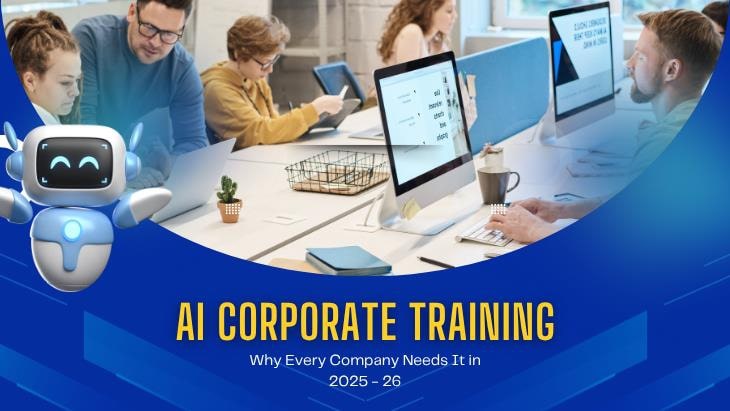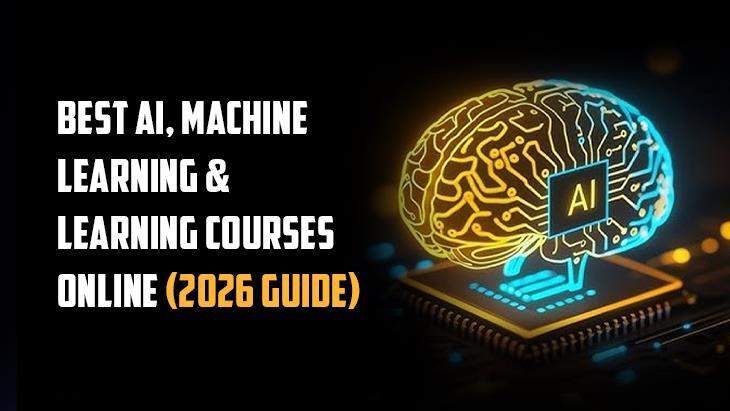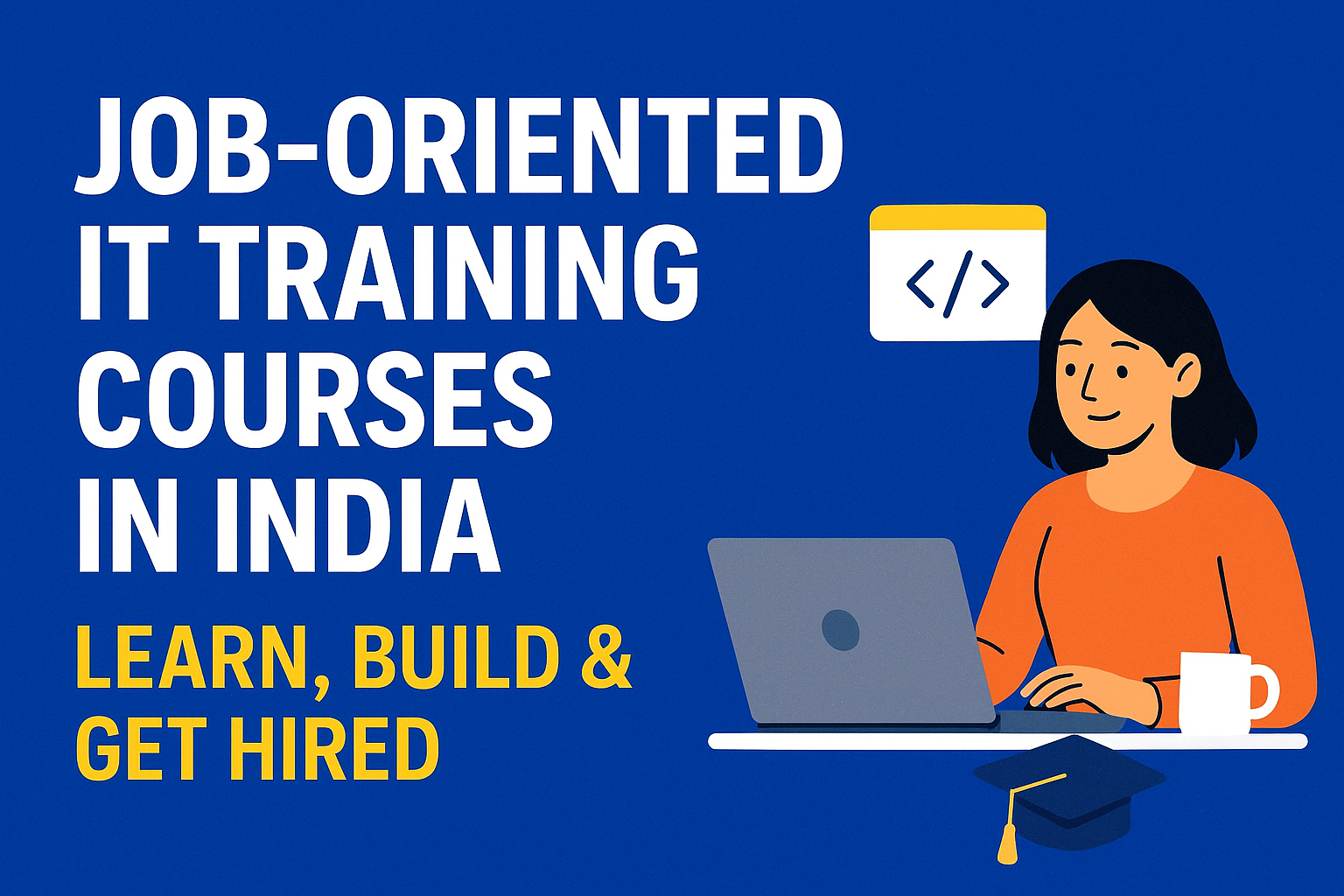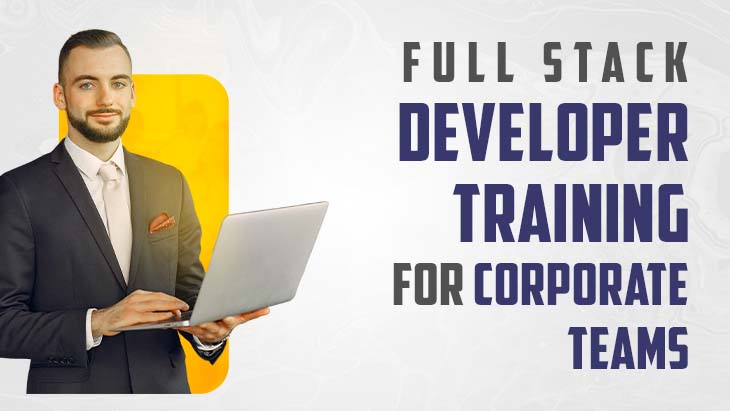Artificial intelligence isn't just the "future" anymore; it's a big part of how businesses work now. Artificial intelligence (AI) is changing how businesses work, come up with new ideas, and grow in fields like IT, BFSI, healthcare, retail, and manufacturing. Companies that invest in AI Corporate Training now will be the best in their fields in the future.
But this is what really happened:
If businesses don't spend money on AI training for their workers, they might have slower growth, higher operating costs, and workers who can't keep up with new tools.
In 2025–26, teaching workers about AI is not a luxury. It's a way to stay alive. Before we go any further, let's make sure we know what AI Corporate Training really is. It's a lot more than just learning how to make ChatGPT prompts.
Why AI Training is No Longer an Option (2025–26)
AI isn't just for pilots anymore; it's being used in real life. AI is already being used by teams in IT, banking, financial services, and insurance (BFSI), healthcare, retail, and manufacturing to speed up customer service, automate tasks, and look at data.
- IT: code helpers, automating infrastructure, and looking into problems
- BFSI: Keeping an eye on compliance, finding fraud, and scoring risk
- Healthcare: paperwork for patients, help with triage, and looking at pictures
- Retail: figuring out how much people want, making products fit their needs, and changing prices
- Manufacturing: Digital twins, predictive maintenance, and quality control are all part of manufacturing.
Businesses that don't have teams with AI skills are not only losing out on efficiency, but they are also losing their edge over their competitors. AI now helps businesses stand out by giving customers faster, cheaper, more accurate, and better service.
"AI Corporate Training" is also not just about how to write better ChatGPT prompts. It's about changing how things are done, adding AI to important tools, making sure that people use it responsibly, and giving every worker the AI skills they need to do their best work.
What Is AI Corporate Training?
AI Corporate Training is a planned program that teaches employees how to use AI in their jobs and gives them playbooks that are specific to their jobs. It focuses on real work, like automating tasks, speeding up analysis, making better decisions, and keeping data safe.
Common types of programs are:
- GenAI training (Microsoft Copilot, ChatGPT, Claude, and Gemini)
- Automation and workflow Power Automate, Zapier, Make, and RPA are all examples of AI.
- Salesforce For marketing, sales, and HR, there are AI tools like Einstein, HubSpot, Workday, Notion AI, and Canva.
- Basic data analysis and machine learning (Excel/Sheets + AI, Power BI, Looker Studio, and Python/SQL)
- Responsible AI and governance (AI policy, privacy, compliance, bias, and risk management)
Why AI literacy is now mandatory:
- GenAI training speeds up everyday tasks by 30 to 40%.
- Companies need to set up safety measures to keep AI from being too dangerous.
- In 2025, everyone will need to know how to design quickly, think about automation, and use AI to help them look at data, no matter what their job title is.
Why Every Company Needs AI Training in 2025–26 (Core Benefits)
Productivity Boost Through AI Tools
- Set up automatic processes for things you have to do over and over, like entering data, formatting it, making schedules, and checking for quality.
- Drafts that use AI can help you finish your reports, research, and paperwork more quickly.
- Make sure that everyone on the team follows the same best practices so that everyone can improve over time.
For instance, a PM team uses AI to write PRDs, summarize interviews with stakeholders, and make test cases. This cuts down on preparation time by 40%.
Reduction in Human Error
- AI-assisted decision-making helps you see things that don't make sense or don't add up.
- AI-powered quality checks make reports, code, and compliance documents more accurate.
For instance, the finance department uses AI to compare spreadsheets and make sure that transactions are correct. This cuts down on the number of mistakes that people make.
Better Business Decisions With AI Insights
- AI-powered analytics turn raw data into clear stories and steps to take next.
- Predictive models help teams figure out how much risk, churn, and demand there will be.
Example: Retail planners use AI and point-of-sale (POS) data together to make better predictions about the seasons and keep stock levels up.
AI Integration Across Departments
Making content, researching personas, writing SEO briefs, and testing creative ideas are all parts of marketing.
- Sales: writing proposals, personalizing emails, scoring, and summarizing calls
- HR: making job descriptions, looking over resumes, making rules, and learning about analytics
- Finance: making guesses, looking at differences, speeding up the close, and checking out vendors
- AI copilots, creating a knowledge base, deflection, and routing are all ways to help customers.
A Competitive Edge in a Technology-Driven Market
Companies that have teams trained in AI ship things faster, run their businesses better, and make changes more quickly.
A quick look at the case: A mid-market SaaS company trained 180 employees in one quarter, cut the time it took to make a proposal by 52%, and increased pipeline coverage by 18%.
What Skills Employees Learn in AI Corporate Training
- Prompt engineering that works (structured prompts, few-shot, chain-of-thought, and guardrails)
- Connecting CRM, documents, email, and data tools to automate AI workflows
- Using AI to clean up data, do exploratory analysis, make visualizations, and find insights
- Writing reports and documents like meeting notes, SOPs, summaries, and slide outlines
- Customer service powered by AI (help from agents, tone control, and escalation triage)
- AI to help with sales tasks like account research, messaging, battlecards, and proposals
- Ethics and responsible use of AI (the EU AI Act, ISO/IEC 42001, and NIST AI RMF, as well as privacy and bias)
Who Needs AI Training? (Target Audience + Use Cases)
- CXOs and managers need to know about AI strategy, return on investment (ROI) metrics, policy, and how to handle change.
- HR and L&D: AI policy, developing talent, mapping skills, and figuring out how to use them
- Marketing: coming up with ideas for campaigns, managing content, SEO, and automating creative work
- Sales: outreach, discovery notes, automated proposals, and tools for making predictions
- For developers and tech: code copilots, unit tests, documentation, and summaries of incidents
- Admin and operations: forms for intake, approvals, automated tasks, and reports
- Customer service: AI knowledge curation, agent copilots, quality assurance, and feedback mining
Real Business Impact: How Businesses Gain (With Examples)
These are the usual results when companies decide to use corporate AI to train their employees:
- 30–40% more productive work on knowledge work
- 20–50% faster completion of a project (from learning about it to delivering it)
- Standardization and automation can lower costs of doing business by about 25%.
- Customers are happier when they get better service that is faster and more accurate.
Mini case snapshots:
- Healthcare provider: AI helped doctors write clinical notes faster, which made them happier.
- Manufacturing: Vision-assisted QA found problems sooner, and the cost of fixing them went down by 22% in six months.
- BFSI: AI helped compliance checks cut policy reviews by 35% and audits found fewer problems.
Before vs. after (typical for a mid-size team):
- Before: It took 2–3 hours to make a weekly report, and the formatting wasn't always the same. They had to copy and paste by hand.
- After: 20 to 30 minutes with an AI template that gathers information, analyzes patterns, and makes a list of the most important points.
- Result: 70–80% less time spent, more accurate information, and fewer mistakes
Note: The results will be different depending on the function, baseline, and tool stack, but these ranges are common in programs that are run well.
AI Corporate Training Formats (Choose What Fits Your Company)
- Corporate workshops with a live instructor (role-specific)
- Online AI training sessions that are modular, on-demand, and have live Q&A
- Learning in a hybrid way (at your own pace, with group projects, and during office hours)
- AI boot camps for teams that last one to two weeks and are very focused on goals
- There are programs for certain departments, such as sales, HR, finance, IT, support, and marketing.
Tip: Start with a small group of people from different departments, then add more people from each department with different curricula.
What to Look for in an AI Corporate Training Provider
- Experience in the field: examples and use cases that are relevant to your field
- A curriculum that is useful and hands-on: Real data, real tools, and real outcomes
- Tools and technology: Microsoft 365 Copilot, Google Workspace, Salesforce, HubSpot, Power BI, and other tools that help your ecosystem.
- Programs that can be changed: Paths based on roles, limits on data and privacy, and following the rules of governance
- Getting certified and getting help after training: Badges, refresher courses, community, and news
- How to find out what real ROI is: Pre- and post-baselines, usage telemetry, hours saved, and metrics for adoption
- Responsible AI and governance: Policy templates, risk playbooks, and making sure you follow the rules (like the EU AI Act, ISO/IEC 42001, and NIST AI RMF)
Why Choose a Trusted Partner for AI Corporate Training
What a reliable partner can do:
- Training that is specific to the industry and uses examples that are safe and relevant
- Tasks that are based on KPIs, such as saving time, improving quality, or lowering costs
- On the first day, you can use case studies and templates over and over.
- Corporate trainers who are really good at handling change
- Custom AI training modules for each department and set of tools
FAQ’s
Q: What does AI-based corporate training mean?
A: It's a structured, role-based program that teaches employees how to use AI tools safely and effectively, automate tasks, analyze data, and follow responsible AI practices at work.
Q: Should every business teach its workers about AI?
A: Yes. AI is now the most important part of getting things done, making decisions, and giving customers a good experience, no matter what kind of business you work for, big or small. Training makes sure that the use is safe, consistent, and pays off well.
Q: Who should learn how to use AI?
A: Anyone who works with information, such as leaders, HR/L&D, marketing, sales, finance, operations, support, and engineering. AI literacy is the most important thing, but how much you need to know depends on your job.
Q: How long does it take to teach AI?
A: Most programs last between 2 and 8 weeks for each group, and they get regular updates as tools change. A lot of teams get real wins in the first month.
Q: What do businesses gain from AI training?
A: Quicker execution, fewer mistakes, more understanding, lower costs, happier employees, and better compliance. Expect 30–40% more work to be done on specific workflows.
Q: Does training AI make people work harder?
A: Yes, of course. When employees learn how to use good prompts, automation patterns, and tool integrations, they can save hours every week across teams and functions.
Conclusion: Future-Ready Companies Start with AI-Ready Teams
In 2025–26, being able to use AI is a big part of getting things done. Companies that teach their employees about AI now will be able to work faster, waste less, and adapt more quickly as AI becomes more common. Don't wait for a competitor to show you how to do it. One workflow at a time, start training your staff in AI, make rules, and get things moving.
What to do this quarter:
- Pick three to five use cases that will have a big impact.
- Get pilots from different departments together for training.
- Count your wins, write down your strategies, and then get bigger.
Need help planning your AI corporate training? Visit Techaedu: the best software traning Institure in Bangalore and download the brochure to get role-based curricula, real AI project samples, and clear ROI models for your industry.





Leave a reply